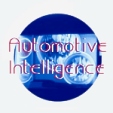
.
.November
05, 2003
.
This Week:
-
Ford Racing's New 5.0-Liter "Cammer" V-8 Crate Engine Offers High Horsepower And Easy Installation
-
Nissan Displays An Array of Performance Vehicles at 2003 SEMA Show
© 1998
- 2003 Copyright &
Disclaimer
Automotive Intelligence,
www.autointell.com
All Rights Reserved .
For questions please contact
editor@autointell.com
.
Hybrid Vehicles are One of Many DaimlerChrysler Solutions For Future
Environmental and Fuel-Consumption Needs
|
TROY, Mich. - Hybrid Electric Vehicles are part of DaimlerChrysler's balanced portfolio of environmental initiatives which includes improved gasoline engines, advanced diesels, fuel cells and renewable fuels. Bernard Robertson, Sr. Vice President, Engineering Technologies and Regulatory Affairs said, "We see a variety of competing technologies coexisting for many years, while market forces and externalities help define the winners and losers," during the SAE Executive Management Briefing Monday, November 03, 2003. |
|
In his keynote presentation, Robertson shared some of the lessons learned from the variety of past and current DaimlerChrysler alternative fuel programs. The company applies these lessons in its approach to hybrid vehicles in order to stay objective regarding the true pros and cons of the technology. Robertson said, "The reality is that the fuel economy of hybrids if highly duty-cycle dependant, and much of the impressive fuel economy demonstrated by the HEVs in the market today stem from other, non HEV-related vehicle technology, such as engine design, lubricants, tires, aerodynamics and so on."
DaimlerChrysler has invested billions in alternate fuels, electrics, hybrids and fuel cells, and will continue to allocate resources to these programs to develop vehicles which will run cleaner and lessen our dependency on oil.
To date, DaimlerChrysler has accomplished the following:
-
6,000 CNG-powered vehicles
-
12,000 M85-powered vehicles
-
More than 1 Million E85-powered vehicles
-
World's largest manufacturer of Neighborhood Electric Vehicles
-
More fuel-cell powered vehicles built than any other auto manufacturer
In addition to these achievements, DaimlerChrysler continues its efforts in improving internal-combustion engines, launching diesel passenger-car products in the U.S., selling the Dodge Ram HEV in 2004 and furthering the development of fuel cell passenger cars, delivery vans, buses and other applications.
"We see real promise in many technologies, including hybrids, and we're vigorously pursuing them all. But we must be candid and realistic about the benefits, the challenges and the business case," said Robertson. "Eventually, each new concept will succeed or fail on its own merits: The facts and our customers will pick the winners. I believe we have a responsibility as engineers to be as objective and candid as we can, and to help facilitate a national dialog based upon facts and data rather than emotion."
(Nov 3, 2003)
| .
Homepage News Companies Management Publications Events Careers Services Discussion Guestbook Search . |